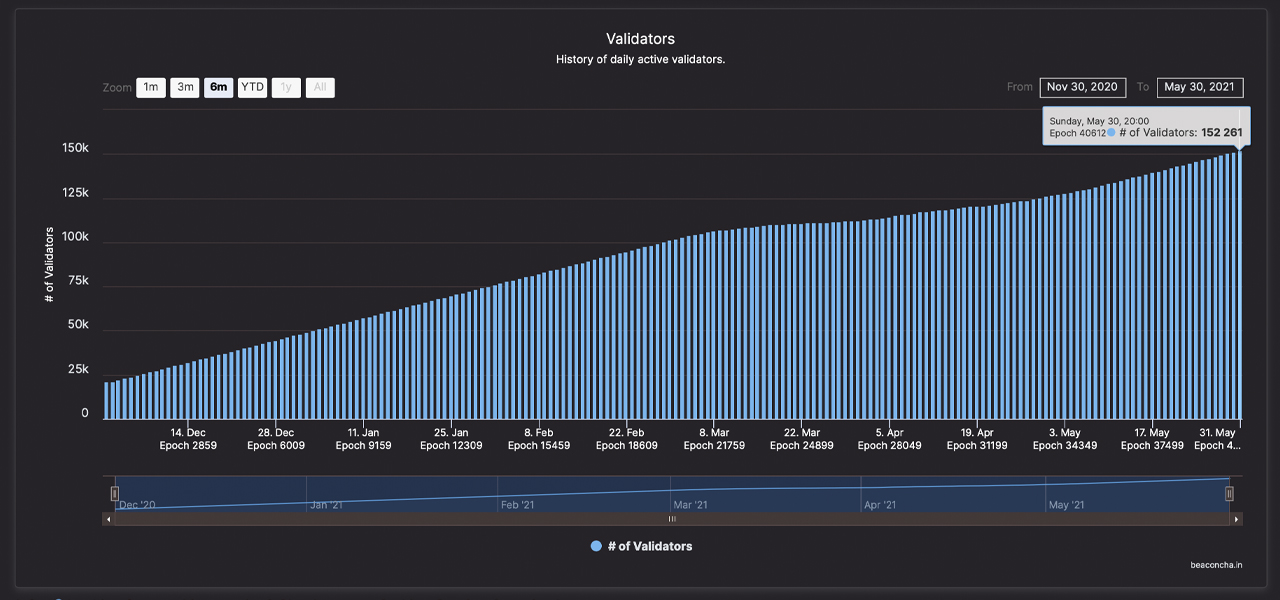
Miami is expanding as a crypto hub by hosting this year’s Bitcoin 2021 event.
source https://cointelegraph.com/news/miami-crypto-conference-predicts-attendance-exceeding-50-000


Miami is expanding as a crypto hub by hosting this year’s Bitcoin 2021 event.


Spain has not been a stranger to the popularity of cryptocurrencies, and with this popularity, also comes the attention of people and organizations wanting to capitalize on the subject. Spanish tribunals have been flooded lately with lawsuits involving cryptocurrency scams related to bitcoin and ethereum based platforms, and the people using these to scam other users for millions of euros.
Tribunals from Spain are now being flooded with cryptocurrency scam-related cases, that are affecting thousands of citizens, according to local reports. With the recent price increase of cryptocurrencies, scammers are always looking to do a quick buck, and they have been successful in Spain. One of the biggest scams reported is the one associated with a company named Algorithms Group, which scammed more than 280 million euros from 300+ investors.
The brain behind this scam is a man called Javier Biosca, who acted as a broker buying and selling cryptocurrencies and offering weekly interests of 25% per investment. However, the business went sour quickly and Biosca disappeared with the money of investors. Emilia Zaballos, the lawyer that is representing private investors, states the scam could have affected 4,000 people. She stressed:
Among those affected are people of all kinds. From notaries, lawyers, national police, businessmen, to tax inspectors and even judges. But also domestic workers, retirees, and the unemployed. And great fortunes.
Nimbus, another investment-based Ponzi scheme, is estimated to have defrauded 136 million euros from more than 4,000 investors in the country. The company, which also operated internationally, offered returns to investors for their deposits in cryptocurrencies. Other important companies that are facing similar trials are Kuailian and Arbistar 2.0, Ponzi schemes that also face money laundering charges.
Emilia Zaballos, the lawyer that is in the Algorithms Group case, states that more organization is needed for facing this kind of scam schemes affecting more citizens each day. She is now pushing for the establishment of new courts just for attending this kind of crypto-related crimes, and for more guidance from the established institutions when dealing with these structures. Till now, national regulators limit their actions to alert investors about the possible dangers of using these investment tools, but they haven’t exerted any direct actions against them.
But she is not just waiting for action. Zaballos is the president of an organization called “Asociación de Afectados por Inversiones por Criptomonedas,” that groups the users affected by these organizations and helps them execute legal actions against them.
What do you think about the rise of cryptocurrency scams in Spain? Let us know in the comments section below.



U.S. banking corporation BNY Mellon is gearing up to offer crypto custody services out of Dublin where it has just established a digital hub. The news coincided with a stark warning issued by a top central bank official in Ireland who said people should only buy bitcoin if they’re prepared to lose money.
Following a decision to enter the cryptocurrency space announced in February, the Bank of New York Mellon has now created a “Digital Innovation Hub” in Dublin. The unit will act as a custodian for crypto assets, the Business Post reported, noting that with the move, “the banking giant, is betting on the future of bitcoin and other cryptocurrencies.”
The hub will allow clients to hold, transfer and issue digital assets, the Irish publication detailed. Custodial services will be provided for a variety of assets including the cryptocurrency with the largest market cap, bitcoin (BTC), non-fungible tokens (NFTs), and central bank digital currencies (CBDCs).

BNY Mellon is America’s oldest banking institution through its predecessor, Bank of New York, which merged with the Mellon Financial Corporation in 2007. It’s also the world’s largest custodian bank and asset servicing company. As of March 31, the bank has $41.7 trillion assets under custody or administration and $2.2 trillion assets under management.
The Bank of New York Mellon Corporation currently operates in 35 different countries, according to its website. It maintains presence in the Republic of Ireland since 1994, and its new crypto asset unit in Dublin will be regulated by the Central Bank of Ireland (CBI).
Soon after the news about BNY Mellon’s involvement with digital assets came out, a high-ranking official of the Central Bank of Ireland was quoted warning that the growing popularity of cryptocurrencies such as bitcoin is “of great concern.” In an interview with Bloomberg, CBI’s Director-General for Financial Conduct, Derville Rowland, stated that “crypto assets are quite a speculative, unregulated investment.”
Rowland, who is associated with the bank’s recent enforcement investigations, also stressed that people who want to invest in cryptocurrencies should be “really aware they could lose the whole of that investment.” Her department is known for imposing hefty fines on some of Ireland’s biggest financial companies.

The CBI has already fined or is still investigating most Irish retail banks for mortgage overcharging. Earlier this year, the central bank fined Ireland’s biggest securities firm, Davy. The company has since been put up for sale following the resignations of its top managers. Speaking about the case, Rowland said that Davy needs to “look in the mirror” and ask itself “how things went so catastrophically wrong.”
With her latest comments regarding cryptocurrencies, Derville Rowland joins a group of other central bank officials who have warned against crypto investments. Among them is Bank of England Governor Andrew Bailey who recently reaffirmed his skepticism about crypto-assets and insisted they are “dangerous” to the public. Rowland is now preparing to take over as Chair of the Investment Management Standing Committee at ESMA, the European Securities and Markets Authority, in July.
What’s your opinion on Derville Rowland’s comments about cryptocurrencies and do you think other banks like BNY Mellon will establish crypto units in Ireland? Tell us in the comments section below.


Statistics now show the Eth2 deposit contract has more than 5.2 million staked ether worth over $13 billion locked into the smart contract. The contract launched on November 4, 2020, and three weeks later, the contract met the required threshold to initiate the Beacon Chain. It’s not cheap to become a validator these days, as today’s exchange rates show the 32 ether to get started will run a user more than $84k.
Ethereum users have added quite a bit of ether to the “Eth2 deposit contract,” as it’s called on Etherscan as 5,210,370 ETH has been deposited to-date. That’s $13.6 billion worth of ether locked into the Beacon Chain contract, which was invoked six months and three weeks ago.
At the time of writing, there’s more than a dozen 32 ETH-sized transactions waiting to be confirmed. In order for an individual to become a staking validator, 32 ether worth over $84k today is required. Dune Analytics statistics show the contract is 993.66% above the 524k threshold.

Ethereum cofounder Vitalik Buterin got the contract party started on November 5, 2020, when he deposited 3,200 ETH into the contract according to Etherscan. At the time of deposit, Buterin’s initial spend cost around $1.3 million and today it’s worth over $8.3 million. In fact, many of the validators that deposited at that time, saw significant gains during the six months after the Beacon Chain launch.
Data from Dune Analytics further shows that out of the 108,461 transactions sent to the Eth2 deposit contract, there’s 27,100 unique depositors. Beaconcha.in/charts data shows as of May 30, approximately 152,261 validators are recorded.
From November 19 to the 27th, the ETH deposits started to skyrocket northbound. Around March 13, 2021, Eth2 deposits slowed down and started picking up steam again on May 1st. On that first day of May, there was 4.1 million ether locked into the contract, which means it’s increased by 26.8% since then.

The biggest spike in validators was on November 25, 2020, and the last big deposit spike was on May 26, 2021. In addition to noncustodial options, ethereum enthusiasts can also leverage custodial exchanges like Coinbase and Kraken to stake their ether.
Beaconcha.in/charts statistics further shows validator distribution by Eth1 deposit addresses with validators such as Kraken, Binance, Whales, Huobi, Bitcoin Suisse, Staked.us, Lido, and Stakefish.
What do you think about the 5.2 million staked ether locked into the Eth2 Deposit Contract? Let us know what you think about this subject in the comments section below.

|

|

|